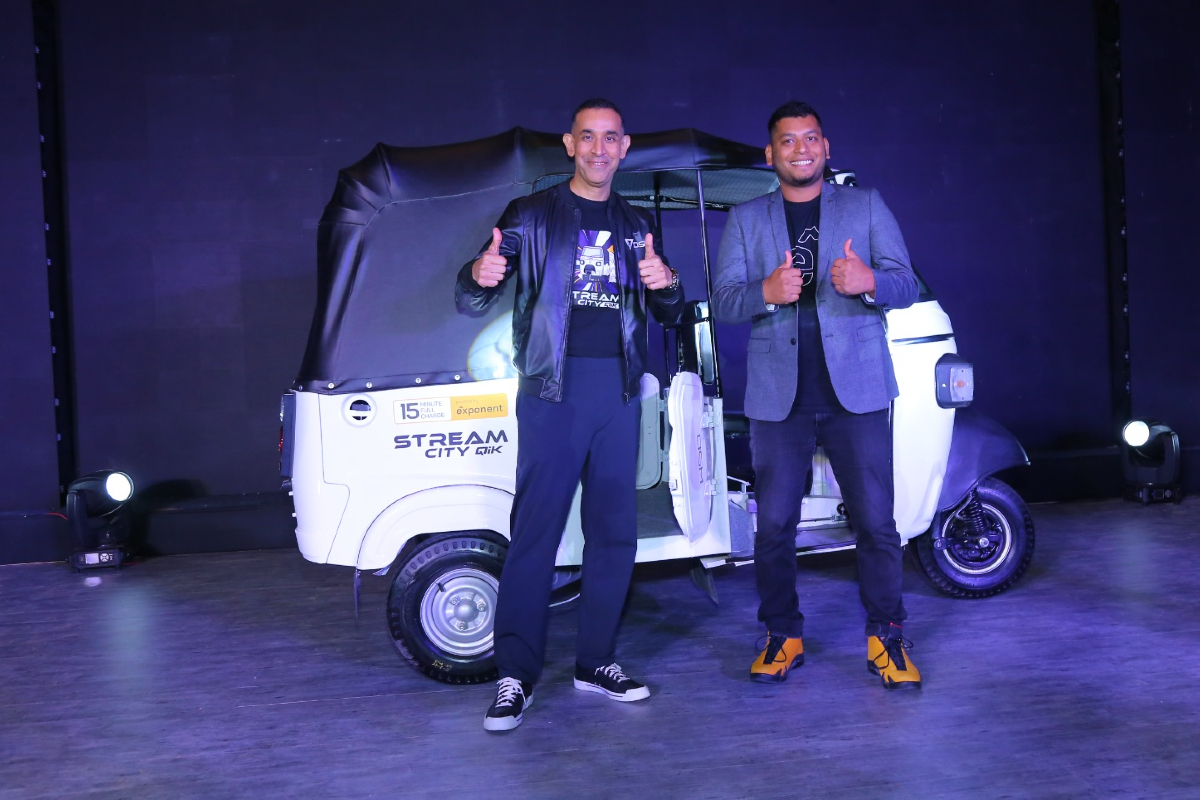Foxconn and Nvidia are building ‘AI factories’ to accelerate self-driving cars | TechCrunch

Nvidia and Foxconn are working together to build so-called “AI factories,” a new class of data centers that promise to provide supercomputing powers to accelerate the development of self-driving cars, autonomous machines and industrial robots.
Nvidia founder and CEO Jensen Huang and Foxconn chairman and CEO Young Liu announced the collaboration at Hon Hai Tech Day in Taiwan on Tuesday. The AI factory is based off an Nvidia GPU computing infrastructure that will be built to process, refine and transform vast amounts of data into valuable AI models and information.
“We’re building this entire end-to-end system where on the one hand, you’re building this advanced EV car…with an AI brain inside that allows it to interact with drivers and interact with passengers, as well as autonomously drive, complemented by an AI factory that develops a software for this car,” said Huang onstage at the event. “This car will go through life experience and collect more data. The data will go to the AI factory, where the AI factory will improve the software and update the entire AI fleet.”
The AI factory tie-up builds off a partnership between Nvidia and Foxconn announced in January to develop autonomous vehicle platforms. That agreement involved Foxconn becoming a primary supplier of electronic control units (ECUs) for automakers, which will be built with Nvidia’s Drive Orin system-on-a-chip (SoC), a supercomputing AI platform that supports autonomous driving functions. On Tuesday, Foxconn also committed to manufacturing ECUs with Drive Thor, Nvidia’s next-gen SoC, after production starts in 2025.
As part of that partnership, Foxconn — which has been steadily unveiling off-the-shelf EV platforms for automakers to purchase — said the vehicles it makes as a contract manufacturer will be built with Nvidia’s Drive Hyperion 9 platform, which includes not only Drive Thor, but also a suite of sensors like cameras, radar, lidar and ultrasonic that are necessary for self-driving capabilities.
Foxconn is already contracted to build EVs for Fisker, even as it gets sued by its erstwhile partner Lordstown Motors. The automaker will need scale in order to make its AI factories viable, especially if it’s going to compete with Tesla.
Because these AI factories are essentially rivals to Tesla’s Dojo supercomputer, which the Elon Musk-owned automaker started production on over the summer. Dojo will train Tesla’s neural nets, which are used to power, train and improve “full self-driving” (FSD), the automaker’s advanced driver assistance system. Musk hopes FSD will actually be fully self driving one day, which is where the powerful compute of Dojo comes in.
Tesla today uses a large Nvidia GPU-based supercomputer, but the new Dojo will be custom-built using chips designed by Tesla. The Foxconn-Nvidia AI factories will be based on Nvidia’s GH200 Grace Hopper Superchip and AI Enterprise software, according to the company.
The factories will have other applications beyond self-driving cars.
On stage at Hon Hai’s tech event, Liu shared Foxconn’s goal to convert itself “from a manufacturing service company to a platform solutions company” by scaling the AI factories across various industries. Foxconn is targeting three platforms to start: Smart EVs, smart cities and smart manufacturing.
“This is a factory that takes data input and produces intelligence as an output,” said Huang, as Liu nodded his assent. “In the future, every industry, every company will have an AI factory.”




